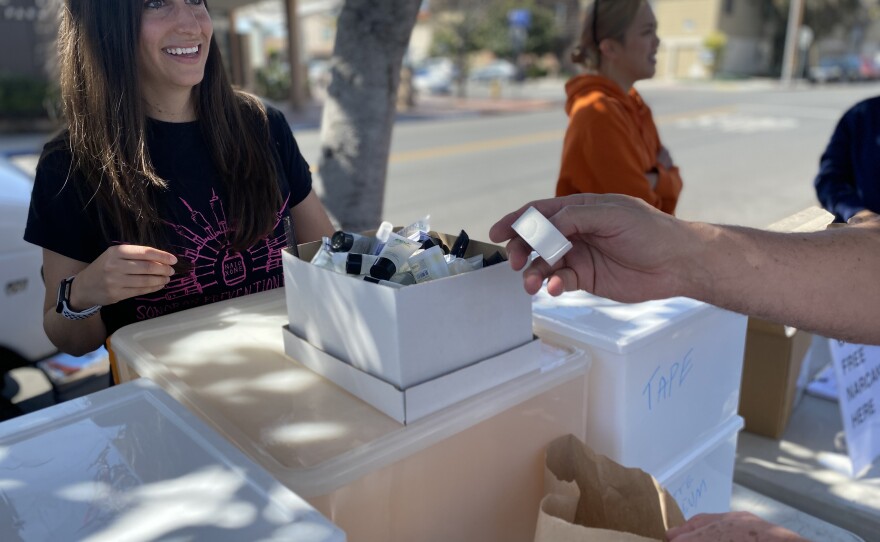If You Need Help
San Diego Access and Crisis Line:
(888) 724-7240
SAMHSA’s National Helpline:
(800) 662-HELP (4357);
TTY: (800) 487-4889
Drug users lined up outside a Friday morning mobile syringe exchange before it even opened. The weekly event across from the North Park Library drew a 53-year-old handyman with hands covered in grime, a 21-year-old cashier who counters his unhealthy substance habits with running and biking, and a social worker wearing flashy new shades that were a gift from Palm Springs.
The syringe services program is the only one in the region because it has city of San Diego approval. A 1997 county policy by the longtime conservative board of supervisors prohibits county use of the operations. The elected officials have previously said they're concerned exchanges promote drug use, but the sole Democratic supervisor wants to overturn the ban at a board meeting Tuesday citing research that shows they reduce disease transmission and increase the likelihood users will seek treatment.
A recent report estimated users who inject drugs account for nearly a third of the hepatitis C infections in the county. Exchange programs can cut transmissions of hepatitis C, a bloodborne virus that can lead to liver failure, as well as HIV by an estimated 50%, according to the Centers for Disease Control and Prevention.
Certified addiction counselor Tara Stamos-Buesig said exchanges provide users supplies they need to be safe because sterile needles decrease the risk of transmitting but are difficult to acquire even though a state law grants pharmacists the discretion to sell them without a prescription. But the services also keep drug users connected to staff who provide health information without criticism, she said.
"They’re able to go to a place where for maybe only three minutes out of their week where they’re not judged or stigmatized or stereotypes aren’t there," said Stamos-Buesig, also a part of the county's initiative to end hepatitis C.

Users who frequent needle exchange programs are also more likely to enter treatment, the CDC said, pointing to multiple studies.
Nathan Fletcher, the county's first Democratic supervisor in decades, said the research shows syringe services are an important tool to protect the public from deadly and costly diseases. He's challenging the decades-old ban with a proposal to develop a county harm reduction strategy that includes the exchange programs. He said the Family Health Centers staff that operate the current weekly exchange program in two city of San Diego locations offer support and care that can motivate an addict to seek help.
"We can’t let optics or the way someone feels or the way someone felt 30 years ago stop us from doing what we know the right thing is to do," Fletcher said.

Stamos-Buesig said she's an example the programs work — before she was an advocate, she was addicted to heroin and meth and living on San Diego's streets.
"I would’ve never made it into recovery if it wasn’t for syringe programs," she said.
She traversed the city with her belongings on her back, including enough shoes to satisfy her love of footwear, but said she only found found brief moments of refuge in low rent motels and inside the Family Health Center’s mobile needle exchange. That's where she saw a flyer for a treatment program that ultimately helped her get clean.
"I wouldn't be here today if it wasn’t for the staff and lack of stigma and judgement that kept me coming back looking for that connection," she said.
Opponents argue exchanges make it seem the government endorses and facilitates drug use, despite state studies that found the contrary.
Supervisor Dianne Jacob told KPBS in 2009 that she felt research that needle exchanges reduced drug use wasn't conclusive. This time 10 years later, a Jacob spokesman said in an email that the supervisor will listen to the testimony and presentations at the Tuesday board meeting before weighing in.







